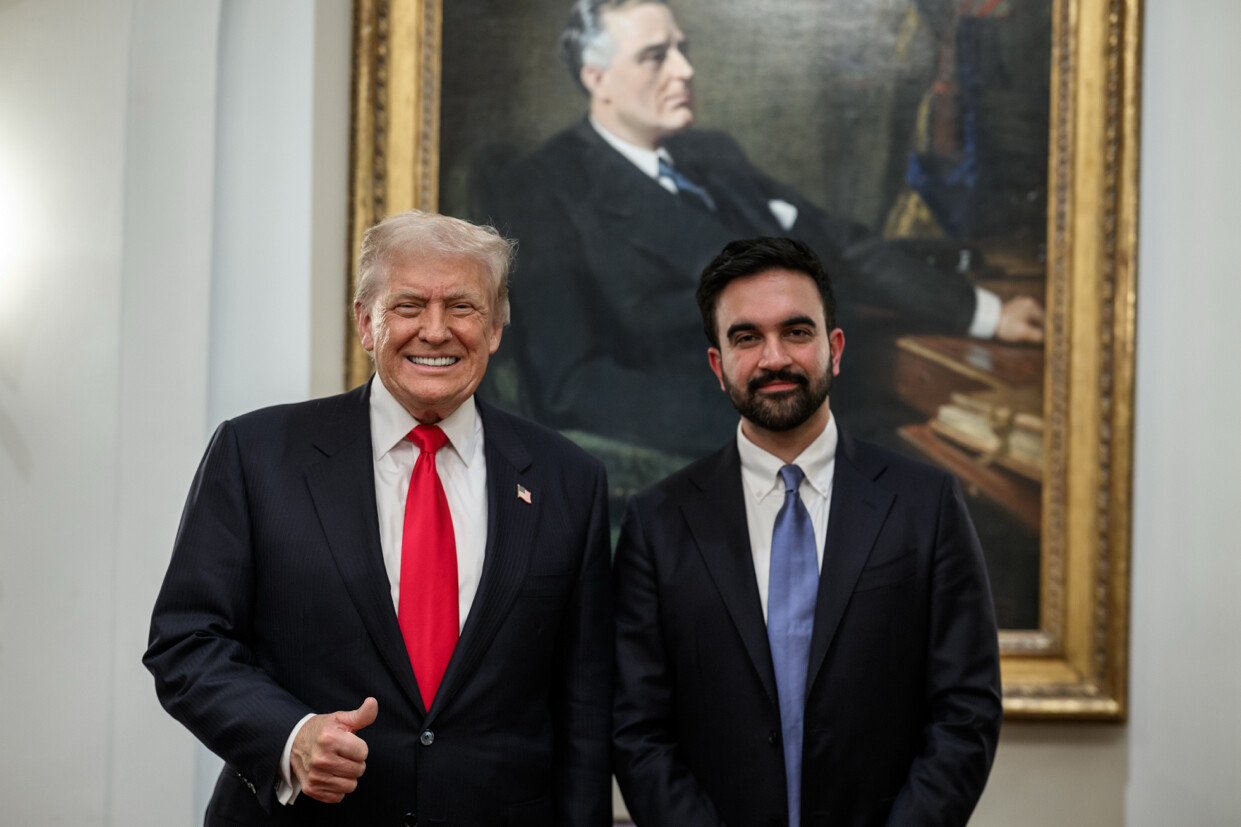Zohran Mamdani entered the Oval Office on Friday for what the White House described as a routine introductory meeting between the mayor-elect of New York City and the president. Standing beside President Donald Trump, Mamdani repeated his allegation that Israel is “committing genocide” in Gaza and said American taxpayers are helping fund it. His statements reignited months of concern among Jewish leaders over his record on Israel, antisemitism, and a series of comments that have placed him at the center of America’s debate over the war.
In response to one reporter who inquired about Mamdani’s view on US involvement in the Israel-Hamas War, the incoming mayor stated that he has “spoken about the Israeli government committing genocide and our government funding it,” continuing that he shared his concerns with Trump during their meeting.
Trump did not respond to the question nor deny the genocide accusation.
Mamdani told reporters that New Yorkers are “tired of seeing tax dollars fund wars,” and that the US needs to “follow through on the international human rights,” claiming that they are “still being violated, and something needs to be done, no matter where we’re speaking of.”
Trump’s warm tone toward Mamdani did not erase the months-long friction between the two men. Trump had previously called the mayor-elect a “radical left lunatic,” a communist, and a “Jew hater.” After the meeting, he described Mamdani as “a very rational person” and emphasized their shared interest in improving New York City.
Mamdani has built his political identity around harsh criticism of Israel, and his charge of “genocide” has become the core of his foreign-policy rhetoric. Israel rejects the allegation outright. The United States government rejects it as well. The International Court of Justice has issued provisional emergency orders relating to humanitarian access, but has not concluded that Israel is committing genocide, nor has any international judicial body issued a criminal conviction against Israeli officials.
Jewish organizations, legal scholars, and human-rights researchers have published detailed critiques of the genocide allegation. They note that the Genocide Convention requires proof of intent to destroy a people as such — a standard that remains under dispute and has not been established in any binding legal forum. They also cite Hamas’s documented use of civilians as human shields, its embedding of military infrastructure in hospitals and residential areas, and Israel’s efforts to issue evacuation orders and establish humanitarian corridors.
Q: Are you affirming that you think President Trump is a fascist?
— Aaron Rupar (@atrupar) November 21, 2025
MAMDANI: I've spoken about–
TRUMP: That's okay. You can just say yes. I don't mind. pic.twitter.com/uWZFRcmGxB
He supports the BDS movement, publicly praised anti-Israel campus protests, and refused to condemn the slogan “globalize the intifada,” which many Jews understand as a call to violence against Israelis and Jews. According to reporting in The New York Times, he privately told business leaders he would avoid using the phrase but would not publicly repudiate it.
Accusations of antisemitism intensified after a protest this week outside Manhattan’s Park East Synagogue. Demonstrators shouted “death to the IDF,” “globalize the intifada,” and slurs at pro-Israel counter-protesters. Mamdani’s spokeswoman said the mayor-elect “discouraged the language” but focused largely on criticizing the synagogue for hosting a Nefesh B’Nefesh event, calling it “an inappropriate use of a sacred space” and “in violation of international law.” His office did not address the antisemitic chants reported at the scene.
Mamdani’s record includes a public pledge to arrest Prime Minister Benjamin Netanyahu if he were to visit New York. Legal experts and municipal officials have dismissed this as beyond the authority of a city mayor, but Mamdani repeated the vow during his campaign. Trump confirmed that the subject did not come up during their meeting.
Mamdani takes office on January 1. His statements on Israel, his posture toward Netanyahu, and his handling of antisemitic incidents have created a political environment in which assessments of his policies are no longer confined to New York City. His comments in the Oval Office placed him at the center of a broader national and international debate, with implications for U.S.–Israel relations, Jewish communal life in New York, and the ongoing legal disputes surrounding the war in Gaza.




